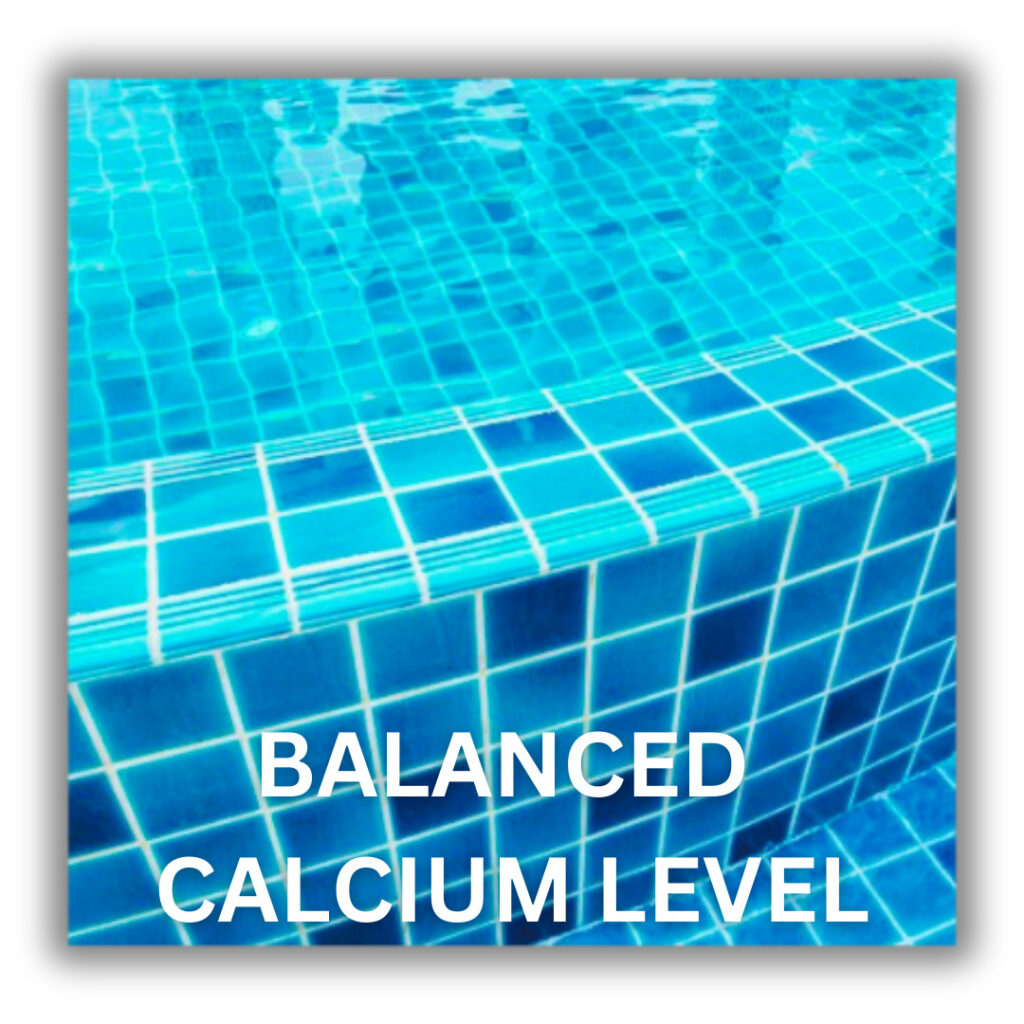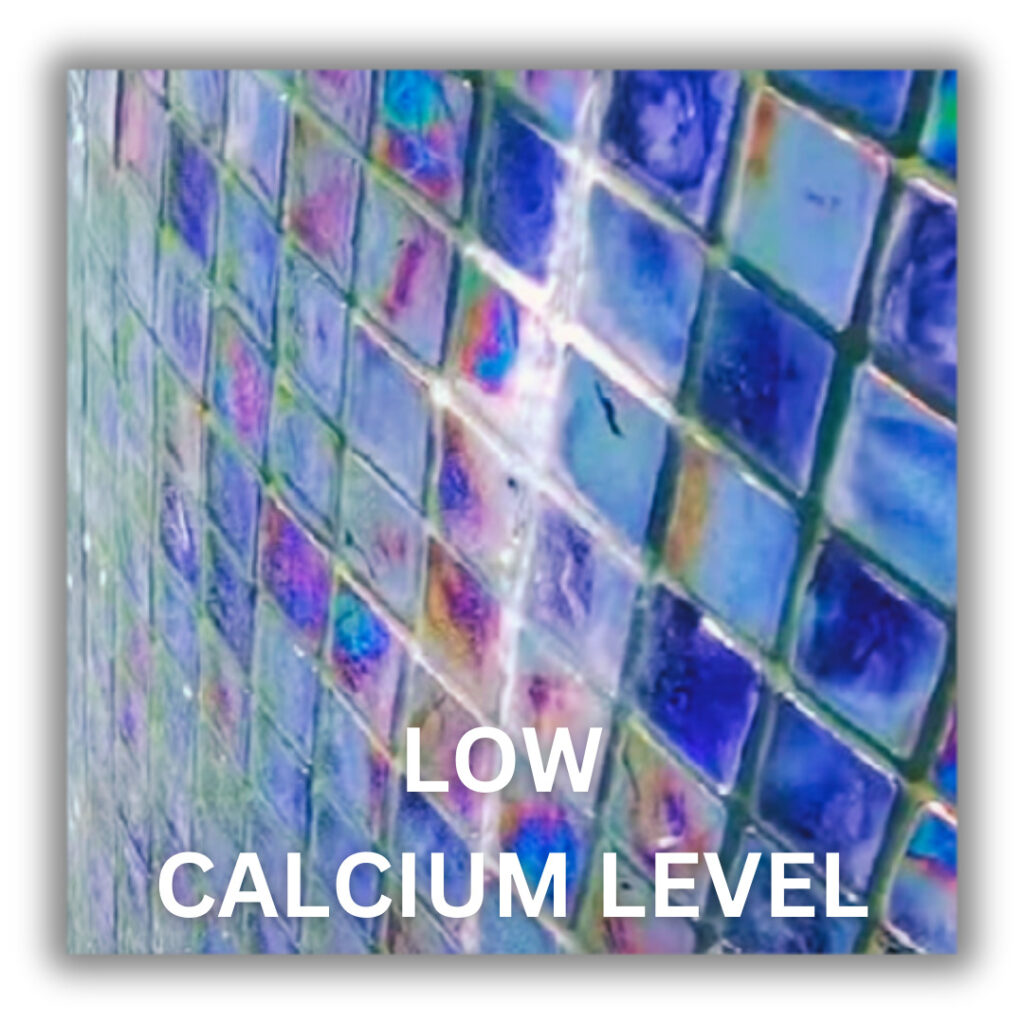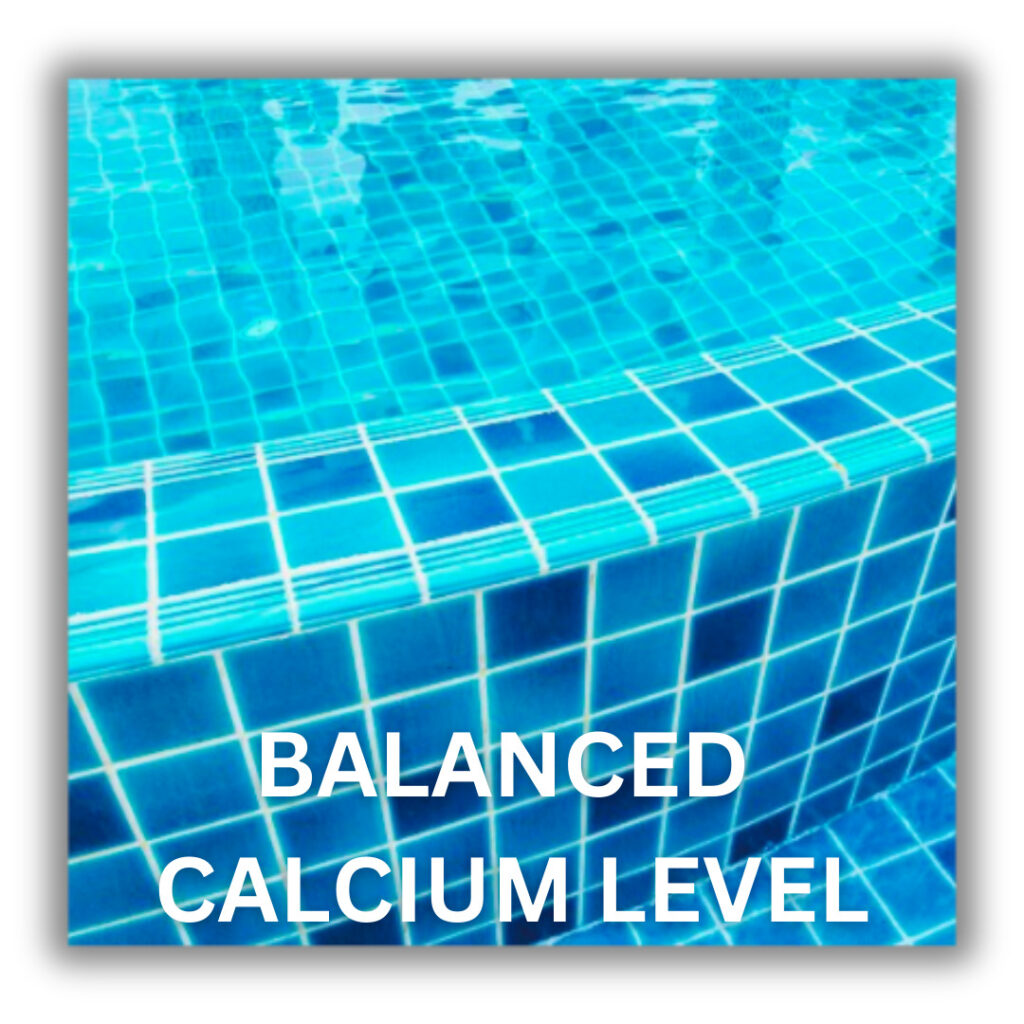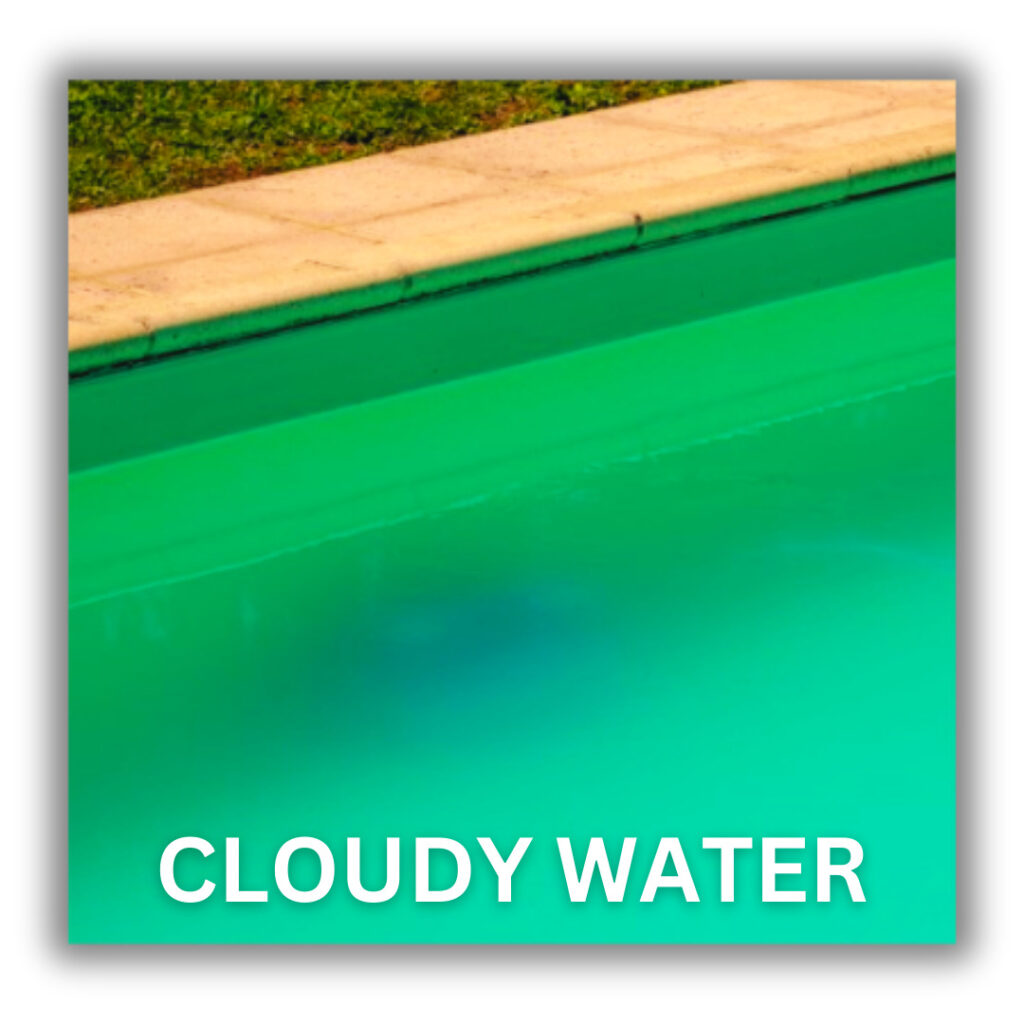Are you looking for the cheapest way to increase calcium hardness but getting confused between baking soda or calcium chloride here we help you find the best and cheapest way to increase your pool calcium hardness.
If you want to keep your swimming pool clear, safe, and cozy for swimmers, you must maintain the water’s chemistry. Calcium hardness is a vital component of the chemistry of swimming pool water.
So I Alex is here with an experience of 20 years in this industry to make you understand better and make it cheaper as well.
This thorough guide will cover everything from what calcium hardness is to why it’s important, when to test it, the ideal level of calcium for a pool, and—most importantly—the most affordable techniques to raise calcium hardness.
What is calcium hardness?
The quantity of calcium ions (Ca2+) in the water of your pool is referred to as its calcium hardness. The standard unit for measurement of the calcium ions is parts per million (ppm).
its play important role in your swimming pool and hot tubs, if the calcium hardness level is high that can be lead to scaling and cloudy water. and if the calcium level is low it can be lead to damage the pool surfaces , thatway proper balanced water level is necessary for your pool.


What does calcium do for pool water?
Calcium plays a crucial role in maintaining the overall health and functionality of a swimming pool. the presence of calcium in the pool also know as calcium hardness, contributes significantly to several key aspects.
- Firstly, calcium helps in maintaining the pool’s pH balance, it helps to ensuring water clarity and preventing scaling.
- Adequate calcium levels also aid in algae prevention, also act as a safeguarding the pool against unsightly and harmful growth.
- Moreover, calcium is essential for surface protection, preventing the erosion of pool walls and equipment, thus reducing maintenance costs.
- Additionally, it plays a crucial role in achieving proper water balance and saturation index, ensuring swimmer comfort by providing a safe and enjoyable environment.
In essence, calcium serves as a multifaceted guardian for your pool, ensuring its longevity and the well-being of those who dive in.
Why do we need to increase calcium hardness?
For a number of reasons, maintaining the proper calcium hardness level is crucial.
- Preventing Equipment Damage: Metal parts that comprise your pool equipment, which include pumps, heaters, and filters, can corrode in low calcium environments.
- Protecting Pool Surfaces: When the calcium hardness in the water is insufficient, the water may become aggressive and attempt to balance things by leaching calcium from the pool’s surfaces. This can result in etching, pitting, and other damage to plaster or other pool finishes, as well as the deterioration of pool finishes.
- Water Balance: One of the important factors affecting water clarity, sanitizer efficiency, and overall swimmer comfort is calcium hardness.
How to check calcium hardness in pool?
Knowing the existing level is essential before opting to enhance calcium hardness. Use a Pool hardness test kit or bring a sample of the water for evaluation to a pool retailer. Parts per million (ppm) will be used to indicate the outcome.
Ideal calcium level for pool
A pool’s optimum calcium hardness level normally ranges from 200 to 400 ppm. The equipment and surfaces in your pool are adequately protected by this range, and the water balance is maintained.
How long should you run your pool after adding calcium?
It’s crucial to run the pool pump for a long enough period of time after introducing calcium hardness increases to the swimming pool in order to evenly disperse the added calcium throughout the water.
Usually, operating the pump for 24 to 48 hours is enough. The size and equipment of your pool, however, may change this.
How can I Raise my pool Chlorine hardness?
Chemicals are available in the market to increase the hardness of different types of pools. You can go with any brand of Pool calcium increaser, you just have to keep in mind that it contains a high amount of calcium chloride. Many people do not use any brand of calcium hardener and use direct calcium chloride, but this can be dangerous for you if you are doing it for the first time.
My suggestion is that you should use any branded pool calcium hardener. Instead of this, there are other calcium hardeners available in the market like Calcium Chloride Dihydrate, Calcium Hypochlorite & Deicer.
Cheapest way to increase calcium hardness in a pool using Calcium Chloride
Now we will be discussing the steps of adding calcium chloride to your pool in detail making it easy for you, when you imply it practically:
- Determine the required amount: To calculate how much calcium chloride to add, first you’ll need to know the volume of your pool in gallons as well as the current calcium hardness level. Dosage recommendations will be found on the product label.
- Before dissolving: Before adding the necessary amount of calcium chloride to the pool, make sure that you dissolve it in a bucket of water to avoid cloudiness or precipitation.
- Distribute evenly: To achieve an even and a better distribution, pour the dissolved calcium chloride solution into the pool while the pump is operating.
- Test and retest: Check the calcium hardness level a few days later to make sure it is still within the recommended range.
Alternative Techniques to Boost Calcium Hardness
Although calcium chloride is the most popular option, yet there are other ways to make your pool’s calcium harder, including:
Hypochlorite of calcium
A common pool shock treatment is calcium hypochlorite, which comprises both calcium and chlorine in it. You can raise calcium hardness while sanitizing the pool by using calcium hypochlorite as a form of shock treatment. When employing this technique, though, it’s crucial that you keep a constant eye on the chlorine levels.
Dihydrate of calcium chloride
A particular kind of calcium chloride containing water molecules is called calcium chloride dihydrate. It can be poured right into the swimming pool and will raise the calcium hardness without changing the water’s overall pH balance.
Does chlorine make calcium more brittle?
Although calcium is present in chlorine products like calcium hypochlorite, they shouldn’t be depended upon as the main source of a rise in calcium hardness. These products typically don’t provide you with enough calcium to keep the right levels stable on their own.
As a result, certain calcium hardness boosters such as calcium chloride are advised for our betterment folks.
Does baking soda make calcium more brittle?
Although baking soda (sodium bicarbonate) is frequently used to raise the total alkalinity of swimming pool water, it has very little effect on calcium hardness.
Although they are connected, these are two different parts of water chemistry, so you shouldn’t rely solely on baking soda to increase calcium hardness. in this article i discuss deeply about Does baking soda increase calcium hardness so must check it out.
How Can I Clean My Pool’s Surface of Calcium?
A procedure known as “acid washing” can be useful if you’re having problems with too much calcium accumulation on the pool’s surfaces. It’s a more complicated process, though, and may call for expert help.
Acid washing is the process of dissolving and removing the deposits of calcium on a pool’s surfaces with a diluted acid solution. It is advised for dealing with serious accumulation rather than normal maintenance.
What occurs if the calcium hardness is greater than 400 ppm?
Although amounts of calcium hardness somewhat above 400 parts per million (ppm) are often safe, very high levels can cause issues. When water is “scale-forming”.
It can become hazy and the scale can build on the surface of the pool and other equipment. You might require that you partially drain your pool, add fresh water to dilution it, then evaluate and balance it to counteract this.


How to lower pool hardness?
- Step 1: Test the pH level.
- Step 2: Try to use a hose filter to keep some of those minerals out.
- Step 3: Drain some water from the pool.
- Step 4: Add some fresh water
If this method does not work it means you added a high amount of calcium hardener. You can use pool flocculant or Muriatic Acid.
CONCLUSION
Finally, it should be noted that keeping the appropriate level of calcium hardness in your pool is essential for both its lifetime and the ease and security of swimmers. While there are several ways to make calcium harder, calcium chloride represents one of the best and most practical solutions. Your pool will continue to be a pristine and pleasurable refuge for years to come with routine calcium hardness testing and maintenance, alongside other water chemistry factors.
FAQs
Does Pool Shock Raise Calcium Hardness?
Some pool shock additives, such calcium hypochlorite, contain calcium and can help you to increase the hardness of the calcium. However, it’s not usually the main technique for raising calcium hardness.
Can We Add Calcium Directly to the Pool?
Some pool shock additives, such calcium hypochlorite, contain calcium and can help you to increase the hardness of the calcium. However, it’s not usually the main technique for raising calcium hardness.
Is it safe to swim in a pool with low calcium level?
In general, swimmers are safe when swimming in water with low calcium hardness. Although low calcium levels might cause corrosion and damage to your pool’s surfaces and equipment, they might not be safe. For your pool to remain healthy over time, the right calcium hardness must be maintained.
